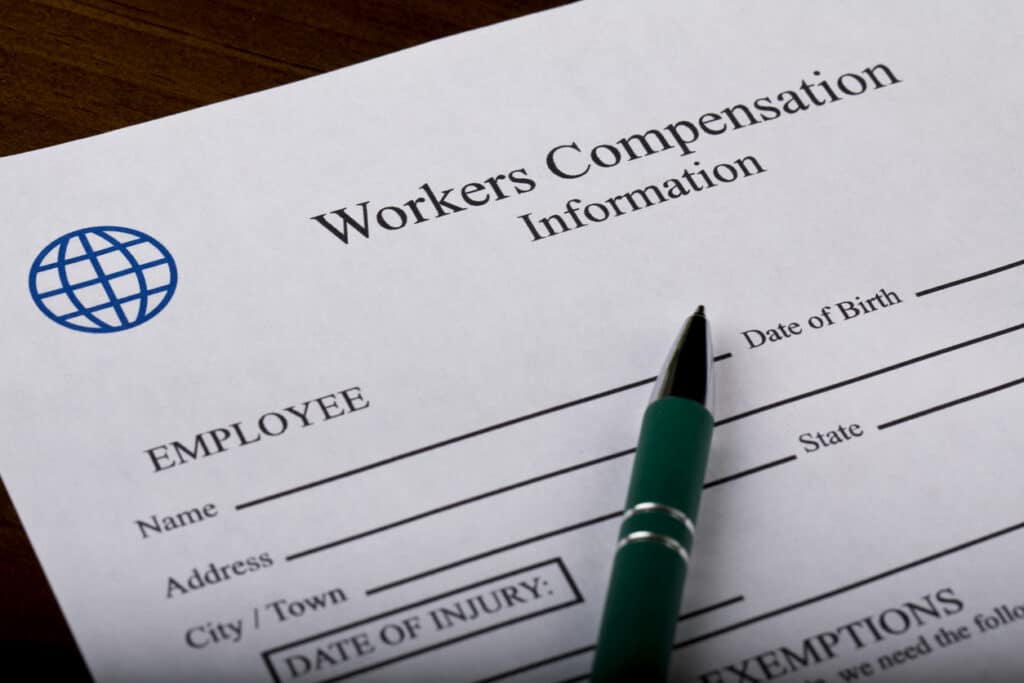Navigating workers comp in South Carolina can be daunting, especially when faced with a debilitating workplace injury. However, understanding the elements of worker’s compensation is crucial for safeguarding your rights and ensuring you receive the benefits you deserve. This comprehensive guide aims to break down the often-complex South Carolina workers comp laws, empowering you with the knowledge to navigate the process confidently.
The Fundamentals of Workers’ Comp in South Carolina
In South Carolina, most employers with four or more employees are legally obligated to carry workers’ compensation insurance. This insurance is a safety net for employees who sustain injuries or illnesses directly related to their job duties. The South Carolina workers’ compensation system operates on a “no-fault” principle, meaning you do not have to prove your employer’s negligence to qualify for benefits.
Who is Covered Under Workers’ Comp?
The South Carolina workers’ compensation requirements for employers are comprehensive, extending coverage to nearly all employees, including:
- Full-time and part-time workers
- Temporary and seasonal employees
- Minors (with a few exceptions)
- Undocumented workers
- Employees of non-profit organizations
However, specific categories of workers may be exempt, such as:
- Independent contractors
- Certain agricultural workers
- Domestic workers
- Railroad employees (covered under federal laws)
- Real estate agents (under specific conditions)
What Injuries Are Covered Under Workers’ Comp?
Under South Carolina workers’ compensation law, a wide range of injuries and illnesses are covered, including the following. Reporting even seemingly minor injuries is essential, as they may develop into more severe conditions if left untreated.
- Traumatic injuries (e.g., fractures, lacerations, burns)
- Repetitive stress injuries (e.g., carpal tunnel syndrome, tendonitis)
- Occupational diseases (e.g., lung conditions, hearing loss, skin disorders)
- Aggravation of pre-existing conditions exacerbated by work activities
Initiating the Workers’ Comp Process
Prompt reporting of workplace injury or illness is critical to initiating workman’s comp in South Carolina. According to the South Carolina Workers’ Comp Statue of Limitations, you have 90 days from the accident or the discovery of a job-related illness to report the incident to your employer. However, reporting the injury as soon as possible is strongly recommended to ensure timely access to medical treatment and benefits.
Seeking Authorized Medical Treatment
Once you have reported your injury, your employer’s workers comp insurance carrier will provide you with a list of authorized medical providers. It is crucial to seek treatment from these approved healthcare professionals, as unauthorized medical expenses may not be covered under the South Carolina worker’s comp system.
Your Initial Medical Evaluation
After choosing a physician, you will need to schedule your first appointment. During your first appointment, be prepared to provide a detailed account of the injury or illness, including:
- The circumstances surrounding the incident
- The specific body parts affected
- Any pre-existing conditions or prior injuries
Your worker’s comp physician will then conduct a physical examination to determine what injuries or illnesses are present based on your symptoms. Upon an official diagnosis, your physician will develop an individualized treatment plan that will help you resume your job responsibilities. It is essential to disclose all relevant information to your treating physician, as this will aid in establishing a clear connection between your condition and your work activities.
The South Carolina Workers’ Compensation Claims Process
After reporting your injury and beginning medical treatment, your employer’s workers’ compensation insurance carrier will initiate the claims process. The claims process ensures you receive a fair settlement after your treatment. The workers’ comp claims process may involve:
- Investigating the circumstances surrounding the incident
- Reviewing medical records and evaluating the extent of your injuries
- Determining your eligibility for benefits
If your claim is approved, you may be entitled to various forms of compensation, including:
- Medical expenses (e.g., hospital bills, surgery costs, prescription medications)
- Temporary disability benefits (partial or total wage replacement)
- Permanent disability benefits (if you sustain long-term impairment)
- Vocational rehabilitation services (if you cannot return to your previous job)
To avoid delays or denials, it is essential to cooperate fully with the claims process and provide any requested information or documentation promptly.
Disputing a Denied Claim or Insufficient Benefits
In some cases, your employer’s workers’ comp carrier may deny your claim or offer insufficient benefits to cover your medical expenses. You can appeal the decision if you believe you have been wrongfully denied or under-compensated.
To initiate the appeals process, you must file Form 50 (for workplace injuries) or Form 52 (for workplace fatalities) with the South Carolina Workers’ Compensation Commission within two years of the accident or injury. This form requests a hearing before a Workers’ Compensation Commissioner, who will review the evidence and testimony presented by both parties and come to a decision.
While legal representation is not mandatory to appeal your worker’s compensation denial, it can help ensure you receive the benefits you are entitled to once you appeal. Consulting with an experienced South Carolina workers comp attorney can significantly increase your chances of a favorable outcome. Workers’ comp lawyers can help present evidence, advocate for your rights, negotiate your settlement, and represent you during court hearings.
Frequently Asked Questions About Workers Comp in South Carolina
To further clarify common myths and concerns, we have compiled a list of frequently asked questions about South Carolina workers comp to help you make the best decisions about your workers’ comp case.
Can I be fired for filing a workers comp claim in South Carolina?
No, it is illegal for an employer to terminate an employee solely for filing a legitimate workers comp claim. Retaliation in this manner is prohibited by state law.
Can I choose my doctor for treatment?
No, you must seek treatment from medical providers authorized by your employer or their insurance carrier. However, you can request a physician change if you are dissatisfied with your care.
Q: What if my South Carolina employer does not have workers comp insurance?
A: If your employer does not carry the required workers’ comp insurance, they may be penalized and fined. In such cases, you may be able to seek benefits through the South Carolina workers’ comp ghost policy program administered by the South Carolina Workers’ Compensation Commission.
How are South Carolina workers comp benefits calculated?
Workers comp benefits in South Carolina are typically calculated based on a percentage of your average weekly wage, subject to certain statutory limits (66 ⅔ of your average weekly pay). The specific calculation method may vary depending on the nature and severity of your injury or illness.
Can I receive compensation for pain and suffering?
No, South Carolina workers comp laws do not provide compensation for pain and suffering. The benefits available include medical expenses, wage replacement, and permanent disability compensation.
How are South Carolina workers’ comp impairment ratings determined?
South Carolina workers’ comp impairment ratings are assigned based on the extent of your permanent disability or impairment resulting from a work-related injury or illness. These ratings are on a scale of 0-100 and are typically determined by your treating physician. They are used to calculate the amount of disability benefits you may be entitled to receive.
The workers’ comp system in South Carolina is complex, but understanding your rights and responsibilities will help you receive the benefits you deserve. You can increase your chances of a successful outcome by promptly reporting your injury, seeking authorized medical treatment, and actively participating in the claims process.
Remember, you are not alone in this journey. At Cumming & Lewis, our workers’ comp lawyers in Spartanburg, SC, are here to help you throughout your worker’s comp claim with empathy and knowledge. Through our legal support and advocacy, we strive to protect your interests every step of the way. Contact us to schedule a free consultation today.

